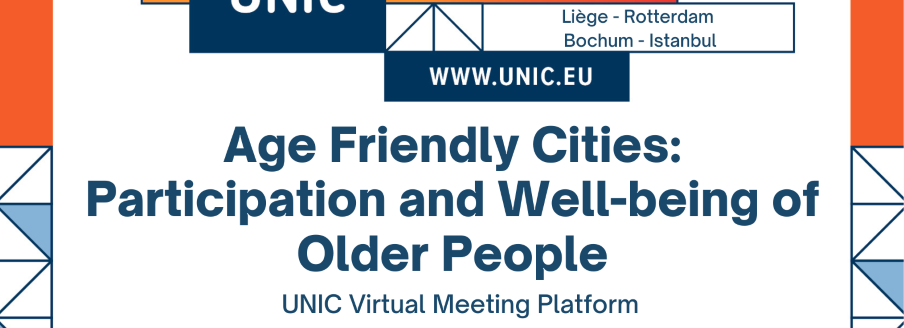This VMP follows a CityLab that took place in June 2021, entitled “Ageing Well in post-industrial cities”
This CityLab aimed at gathering the insights of participants with various backgrounds and profiles and at inviting them to share their experiences, needs and challenges related to the topic.
This VMP was complementary to this first approaches, taking a step further to designing and discussing solutions through the advanced research and developments of our speakers.
The Uliège CityLab held in June 2021 took place as a workshop addressing the issue from different angles, in three different working groups:
- “Housing for the elderly”
- “Anticipation of ageing well”
- “Perception of elderly in society”
Among those challenges, the living space/housing was raised as a big area of importance regarding the well-being of our seniors: “it is crucial to think about the accessibility of the accommodation and the way it is designed in order to ensure the autonomy of elderly”.
As elderly feel left out and lumped together into a very large category (over 50, 65+), often full of stereotype, it seems that the well-being of seniors depends on the possibility for them to make their own choices, to move around easily, to socialise and to enjoy as much independence and autonomy as possible.
Housing/living space was raised as an important issue in this matter, several points for improvement were raised:
- Quality of the environment (nearby services) and of the housing (e.g. no stairs or upstairs rooms)
- The housing should ensure the elderly’s wellbeing and help maintaining the social link : elderly should be able to choose the place where they want to live, the accommodation must be welcoming and allow for meetings with family and friends, promotion of intergenerational housing
For this VMP the University of Liège proposed to professor Catherine Elsen to come back and present her research, which looks at these challenges and attempts to address them by developing adequate living environments and spaces designed with an eye for aging well in Belgium, through 3 key concepts:
- Domesticity :
Recreating some sense of “being at home” as it is very important for Belgian people, who tends to have a strong attachment to their home and usually want to stay as long as possible. Collective living is conceivable as long as there is no uprooting and if the living space is designed with an eye for domesticity and self-determination.
Ex: allowing the residents to cook by themselves, choose what they are going to wear, choose when they get up, ect.
- Sharing spaces and equipment:
Sharing spaces and equipment in order to grow old together, sometime with an intergenerational perspective. There are many examples of collective alternatives dedicated to ageing well, located between the concepts of “Home” and “Institution”.
- Feeling connected to the neighbourhood:
In Belgium, it is really important for the elderly to keep root in their neighbourhood. It is a possibility through alternatives housing, creating/designing living units “close by” that allows to grow old in the desired place if not at home.
Ex: tiny houses/container houses close by a family member or by a nursing home.




